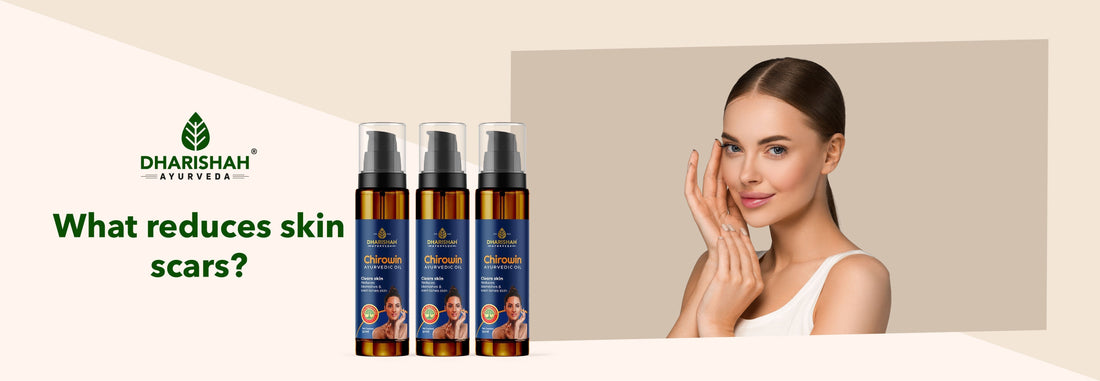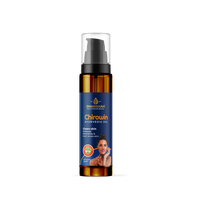Skin Scars: Understanding and Treating These Common Skin Concerns
Introduction to Skin Scars
Skin scars are a common concern for many people, affecting both physical appearance and self-confidence. These marks on the skin are the result of the body's natural healing process following injuries, surgeries, or skin conditions. While scars are a normal part of the healing process, many individuals seek ways to reduce their appearance and achieve smoother, more even-toned skin.
In this comprehensive guide, we'll explore various methods and treatments that can help reduce the appearance of skin scars. From natural remedies to medical interventions and Ayurvedic approaches, we'll cover a range of options to help you find the best solution for your skin concerns.
Types of Skin Scars
Before diving into scar reduction methods, it's essential to understand the different types of scars:
-
Atrophic Scars: These are sunken scars that occur when there's a loss of tissue. Common examples include acne scars and chickenpox scars.
-
Hypertrophic Scars: These raised scars are the result of excess collagen production during the healing process. They typically remain within the boundaries of the original injury.
-
Keloid Scars: Similar to hypertrophic scars, keloids are raised scars that extend beyond the original injury site. They can continue to grow over time.
-
Contracture Scars: Often resulting from burns, these scars cause the skin to tighten, which can restrict movement.
-
Stretch Marks: While not technically scars, stretch marks are often considered a form of scarring. They occur when the skin is stretched rapidly, such as during pregnancy or rapid weight gain.
Understanding the type of scar you're dealing with can help in choosing the most effective treatment approach.
Causes of Skin Scars
Skin scars can result from various factors, including:
-
Injuries and wounds
-
Surgeries
-
Acne and other skin conditions
-
Burns
-
Infections
-
Stretch marks from pregnancy or weight changes
The severity and appearance of scars can be influenced by factors such as:
-
The depth and size of the wound
-
The location on the body
-
Age and genetics
-
Skin type and color
-
Overall health and nutrition
Natural Remedies for Reducing Skin Scars
Many people prefer to start with natural remedies when trying to reduce the appearance of skin scars. Here are some popular options:
-
Aloe Vera: Known for its soothing and healing properties, aloe vera can help reduce inflammation and promote skin regeneration. Apply pure aloe vera gel directly to the scar twice daily.
-
Vitamin E Oil: Rich in antioxidants, vitamin E oil may help improve the appearance of scars. Gently massage the oil into the scar daily.
-
Coconut Oil: With its moisturizing and anti-inflammatory properties, coconut oil can help soften scar tissue and improve skin elasticity. Apply organic, cold-pressed coconut oil to the scar area twice daily.
-
Honey: Known for its antibacterial and wound-healing properties, honey can be applied directly to scars to help reduce their appearance.
-
Lemon Juice: The natural acids in lemon juice may help lighten scars. Apply fresh lemon juice to the scar using a cotton ball, leave for 10 minutes, then rinse off. Be cautious as lemon juice can increase sun sensitivity.
-
Rosehip Seed Oil: Rich in vitamins and essential fatty acids, rosehip seed oil can help improve skin texture and reduce the appearance of scars.
-
Onion Extract: Some studies suggest that onion extract can help reduce scar tissue. Look for creams containing onion extract or apply fresh onion juice to the scar.
While these natural remedies can be effective for some people, it's important to note that results may vary, and consistency is key when using these methods.
Medical Treatments for Skin Scars
For more severe or persistent scars, medical treatments may be necessary. Some options include:
-
Topical Treatments: Over-the-counter and prescription creams containing ingredients like silicone, hydroquinone, or retinoids can help improve scar appearance.
-
Chemical Peels: These treatments use a chemical solution to remove the top layer of skin, promoting new skin growth and potentially improving scar appearance.
-
Microdermabrasion: This technique uses fine crystals to gently exfoliate the skin's surface, which can help reduce the appearance of superficial scars.
-
Laser Therapy: Various laser treatments can target different types of scars, helping to improve texture, color, and overall appearance.
-
Dermal Fillers: For atrophic scars, dermal fillers can be injected to raise the depressed areas and create a smoother skin surface.
-
Steroid Injections: For raised scars like keloids, steroid injections can help flatten the scar and reduce inflammation.
-
Surgery: In some cases, surgical revision of scars may be recommended, especially for large or disfiguring scars.
It's important to consult with a dermatologist or plastic surgeon to determine the best medical treatment option for your specific scar type and skin condition.
Ayurvedic Approach to Scar Reduction
Ayurveda, the ancient Indian system of medicine, offers a holistic approach to skin health and scar reduction. Some Ayurvedic remedies for scars include:
-
Turmeric Paste: Mix turmeric powder with water or honey to create a paste. Apply to scars daily for its anti-inflammatory and skin-lightening properties.
-
Neem: Known for its antibacterial and healing properties, neem can be used in oil form or as a paste made from crushed leaves.
-
Triphala: This Ayurvedic blend of three fruits is believed to promote skin healing when applied topically or taken internally.
-
Ashwagandha: This herb is known for its rejuvenating properties and may help improve skin health when used in topical preparations.
-
Gotu Kola: This herb is believed to promote collagen production and improve skin elasticity, potentially helping with scar reduction.
Chirowin Oil: A Promising Solution for Skin Scars
Dharishah Ayurveda, a trusted name in Ayurvedic skincare, offers a specialized product for scar reduction called Chirowin Oil. This unique formulation combines traditional Ayurvedic ingredients known for their skin-healing properties.
Chirowin Oil is designed to:
-
Promote skin regeneration
-
Reduce inflammation
-
Improve skin texture and elasticity
-
Help fade the appearance of scars and blemishes
The oil's natural ingredients work synergistically to support the skin's healing process and potentially reduce the visibility of various types of scars. Regular application of Chirowin Oil, as part of a consistent skincare routine, may help improve the overall appearance of scarred skin.
To use Chirowin Oil:
-
Cleanse the affected area thoroughly
-
Apply a small amount of oil to the scar
-
Gently massage in circular motions until absorbed
-
Use twice daily for best results
While individual results may vary, many users have reported positive outcomes with regular use of Chirowin Oil for scar reduction.
Prevention Tips for Minimizing Scar Formation
While it's not always possible to prevent scars entirely, there are steps you can take to minimize their formation:
-
Proper Wound Care: Keep wounds clean and moist to promote optimal healing. Use appropriate dressings and follow your healthcare provider's instructions.
-
Avoid Sun Exposure: Protect healing wounds and new scars from sun exposure, as UV rays can darken scars and make them more noticeable.
-
Don't Pick at Scabs: Allow wounds to heal naturally without picking or scratching, which can lead to more severe scarring.
-
Massage the Area: Once the wound has healed, gently massaging the area can help break down scar tissue and improve appearance.
-
Stay Hydrated: Proper hydration is essential for overall skin health and can support the healing process.
-
Eat a Balanced Diet: A diet rich in vitamins C and E, zinc, and protein can support skin health and wound healing.
-
Use Silicone Sheets or Gels: For fresh scars, applying silicone-based products can help minimize scar formation.
-
Manage Underlying Skin Conditions: If you have acne or other skin conditions that can lead to scarring, work with a dermatologist to manage them effectively.
Conclusion: Embracing Healthier, Scar-Free Skin
Reducing the appearance of skin scars is a journey that often requires patience and consistency. While there's no one-size-fits-all solution, a combination of natural remedies, medical treatments, and specialized products like Chirowin Oil from Dharishah Ayurveda can help improve the appearance of scars over time.
Remember that every scar tells a story, and while it's natural to want to minimize their appearance, it's also important to embrace your skin's journey. With the right approach and care, you can work towards healthier, more even-toned skin that you feel confident in.
If you're struggling with persistent or severe scarring, don't hesitate to consult with a dermatologist or Ayurvedic practitioner for personalized advice and treatment options. Your path to smoother, more radiant skin starts with understanding your unique needs and choosing the most appropriate solutions for your skin type and scar concerns.












